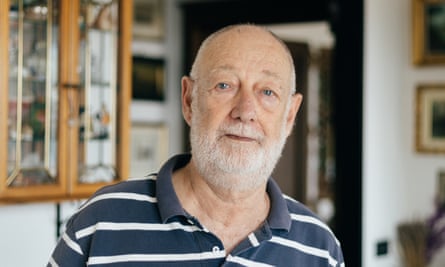Port cities around Europe are increasingly considering bans or restrictions on cruise ships as their health and environmental impacts become clearer.
The 218 cruise ships operating in Europe last year emitted more than four times more sulphur oxides than all the continent’s cars combined, according to the NGO Transport & Environment (T&E). Sulphur dioxide causes respiratory and cardiovascular problems and its pollution is a key component of acid rain.
On 30 July, six cruise ships stopped in Barcelona, the city T&E says is the European destination most affected by cruise ships. This means 10,000 to 30,000 passengers could be cascading along Barcelona’s Ramblas.
How beneficial these visitors are to a city’s tourism industry is hotly debated. Cruise ship companies say that during a seven-day trip, passengers spend €760 (£662) on average at destinations. However, Dídac Navarro, an activist from the organisation Ecologistas en Acció, says most passengers “just take a quick stroll then go back to the ship to eat and sleep”.
According to the Cruise Lines International Association (Clia), which comprises 95% of the global cruise industry, including 50 cruise lines and about 70,000 to travel agencies, 93% of the world’s oceangoing cruise liners are built in Europe. The main shipyards for cruise ship construction are in Italy, Germany, France and Finland.
After the Caribbean, the Mediterranean is the second largest market for the cruise industry. The same vessels navigate both seas, alternating high seasons.

A frequent arrival at Barcelona’s port is the Grandiosa, belonging to the cruise company MSC. Ana, a 74-year-old retiree, boards the vessel with her grandson and mother-in-law. Originally from Colombia, she has lived in Barcelona for the past three decades and this will be her fourth cruise in three years.
“What I like the most is that I don’t have to worry about looking for a hotel or cooking,” she says. Flying the national flag of Malta, the 331-metre-long, 43-metre-wide vessel has 19 decks and 2,421 cabins capable of housing up to 6,334 passengers and 1,704 crew members. Below the MSC logo that adorns the ship’s smokestacks, a group of children go down water slides while several French women combine their breakfast buffet with an early morning tanning session.

When the Grandiosa is in port, many passengers stay onboard to make the most of the solariums, four swimming pools, three twisting slides, seven rooms for children, a gym, a spa, a casino, an arcade, a theatre, nurseries, a grocery store, the 11 dining venues, 20 bars and an all-you-can-eat buffet open 16 hours daily. A ship’s back house also often includes a small hospital, prison and morgue. Outside, the summer sun is scorching but inside, corridors are pumped with air cooled to 20C. Brimming with luxury and colour, the cruise ship is like an overcrowded five-star hotel.
For a four-night Mediterranean cruise with three stops – meals included, but not drinks – Ana paid €259, the cost of a single night in a four-star hotel in Barcelona. In the past, however, thanks to last-minute ticket deals, Ana has managed to pay even less.
The more tourists onboard, the more energy is needed and the more waste is generated. As cruising’s popularity has boomed, so have the accompanying problems it brings. A 2017 paper concluded: “In the early 1990s, cruise tourism was mostly an elite privilege. Parallel to cruise tourism success, also its environmental, social and economic impact has been growing in scale.”
Protesters have been meeting cruise ships with demonstrations in Mediterranean ports such as in Palma de Mallorca, where Margalida Ramis, from the local organisation Grup Balear d’Ornitologia i Defensa de la Naturalesa, says strong public investment over the past decade to attract more cruise ships has “commodified” the city.

Ramis also worries about pollution. “The port is right in front of the city. When cruise ships dock here, they leave their engines running. Some ships even have incinerators or shredders, while others discharge waste directly into the sea.”
Cruise lines usually recycle or incinerate waste. Royal Caribbean says it sends “food waste to a pulper to be pulverised to less than 25mm, as per international standards, and discharged no closer than 12 nautical miles from land”.
A quarter of all ocean waste comes from cruise ships, according to a recent study. Nearly 90% of this waste is legally discharged at sea.
In Genoa, Enzo Tortello, a 75-year-old electronic engineer, lives in front of the city’s port. From his flat he sees and hears nightly parties and daily aqua gym sessions held on docked cruise ships, in addition to breathing in their ceaseless engine exhaust.

Tortello, as part of the Comitato Tutela Ambientale Genova, one of many local organisations concerned about sulphur pollution, says his main request is to electrify the docks, “so ships can plug in directly and turn off their engines”.
Noise from cruise ships is also a pollutant. A 2019 report found noise can displace both fish and predators. “Underwater noise hotspots in the Mediterranean overlap with several protected regions and with areas of importance to noise-sensitive marine mammal species,” it said, adding that light emissions from the ships at night can create “localised problems with migrations of zooplankton, cephalopods and fish”.
In Marseille, residents in L’Estaque, an old neighbourhood in the quartier nord, live along a hillside near the city’s port less than a kilometre from the docks reserved for cruise ships.
Marie Prost-Coletta, part of the neighbourhood organisation Cap au Nord, relocated from the French capital to escape the Parisian air, which she said was detrimental to her husband’s respiratory problems. But in Marseille they found themselves faced with pollution from the sea.

“In the morning, if you wipe a small sponge over a table, it reveals little black dots. They also appear in our swimming pools,” she said.
Last year 50,000 people signed a petition against cruise ships in Marseille. Remy Yves, from the organisation Stop Croisières, says: “The French southern region has invested around €35m in tax revenue to electrify docks for cruise companies. But it’s the companies who should pay for this – they pay no taxes here or anywhere else.”

The simplest mechanism by which shipping companies avoid paying taxes is not new, entirely legal and involves the use of flags of convenience – registering ships in a country other than that of the owning company and conforming to the law of the flag state. However, the mechanisms have become more complex over time, and most cruise companies are in a web of firms mostly registered in tax havens.
MSC said it was taking action to reduce emissions. “As the brand with more vessels in operations in Europe than our competitors, we have long recognised the importance of reducing emissions in European ports and wherever we operate around the globe,” a spokesperson said.
The company added that liquefied natural gas (LNG) “virtually eliminates sulphur oxides by 99%, as well as reducing greenhouse gas emissions by up to 20% when compared to traditional marine fossil fuels, even with methane leakage taken into account”.
Constance Dijkstra, a shipping campaigner at T&E, says “the perceived advantage is offset by the onboard methane leaks that result from incomplete combustion in a ship’s engines.” She said a single LNG cruise ship emits the same annual levels of methane as 10,500 cattle. Methane is significantly more damaging to the climate than carbon dioxide.
Cruise ships that do not use LNG often run on traditional marine fuel, and some use scrubbers. “A scrubber works by spraying seawater into the ship’s exhaust pipes to lessen the amount of sulphur released into the air,” says Dijkstra. “But you end up with water that is polluted and, in many cases, discharged into the ocean, altering its chemical balance.”
Emerge, an EU-funded project, has studied the effect of discharged scrubber water on aquatic organisms, finding “harmful effects even at the tiniest of concentrations”.
Sascha Gill, vice-president of sustainability at Clia, says the T&E report uses “default values” and that the industry tends to use LNG because it is widely available, “despite not being the cheapest option”.
Gill says cruise companies are already investing “in engines and technology that can use multiple fuel types to be prepared in the long run for an eventual transition to alternative fuels”.
In some areas, partial solutions have been implemented. Emissions could be as much as 24% lower if ships reduce their speed. Electrical connections in ports have resulted in less air pollution and greenhouse gas emissions in Hamburg, Rostock and Kiel. Venice was Europe’s third most polluted cruise port in 2019 but thanks to a 2021 ban on large cruise ships, the city has reduced sulphur emissions by 80%.
Josep Lloret, director of the Oceans and Human Health Chair at the University of Girona, says that “cruising, despite technical advances and some surveillance programmes, remains a major source of air, water (fresh and marine) and land pollution, affecting fragile habitats, areas and species, in addition to being a potential source of physical and mental human health risks.”
For the 30 activists against cruise ships from Italy, France and Spain that met early this year in Barcelona, the solution is fewer vessels. In a statement they called for “the radical reduction in cruise activity in the Mediterranean sea”.
Yves now says that “a good cruise is the one that doesn’t come. It’s a bit like a good mess … it’s the one that doesn’t happen.”
This work was produced by Ruido with the support of the Earth Journalism Network (Internews) Mediterranean Media Initiative. Additional reporting by Federica Bordaberry, Edu Ponce and Cush Rodriguez Moz
"come" - Google News
October 19, 2023 at 07:47PM
https://ift.tt/I7y3bQU
‘A good cruise is one that doesn’t come’: Europe’s ports bear brunt of ship pollution - The Guardian
"come" - Google News
https://ift.tt/VwWpTH5
Shoes Man Tutorial
Pos News Update
Meme Update
Korean Entertainment News
Japan News Update
Bagikan Berita Ini














0 Response to "‘A good cruise is one that doesn’t come’: Europe’s ports bear brunt of ship pollution - The Guardian"
Post a Comment